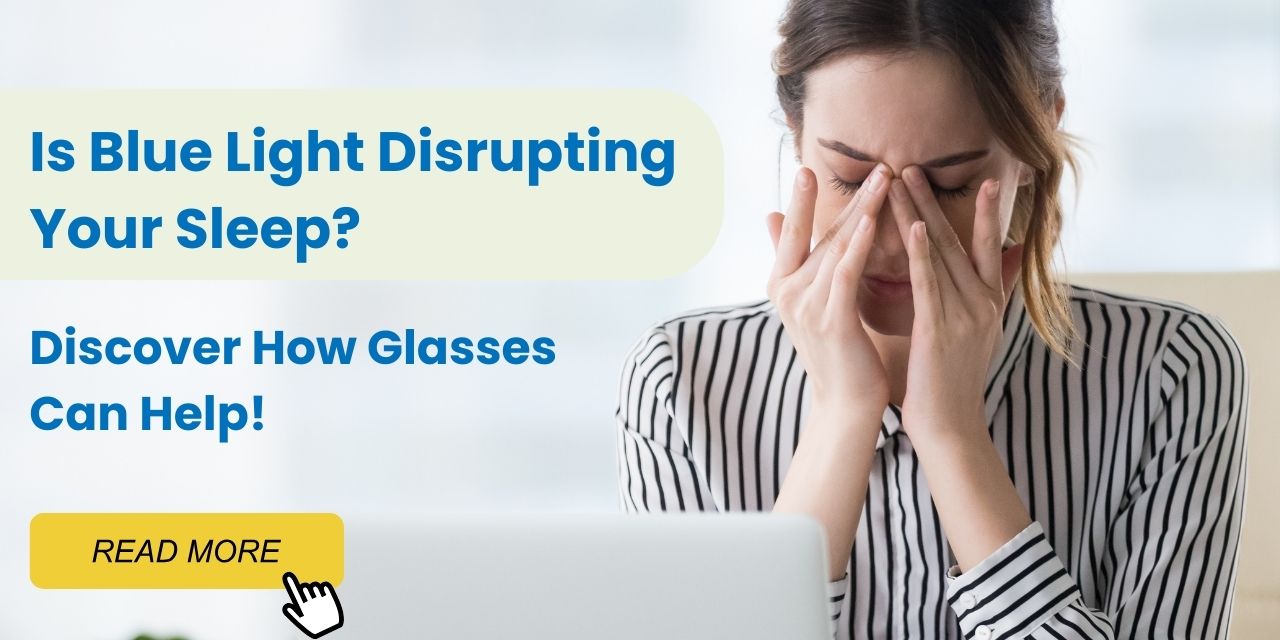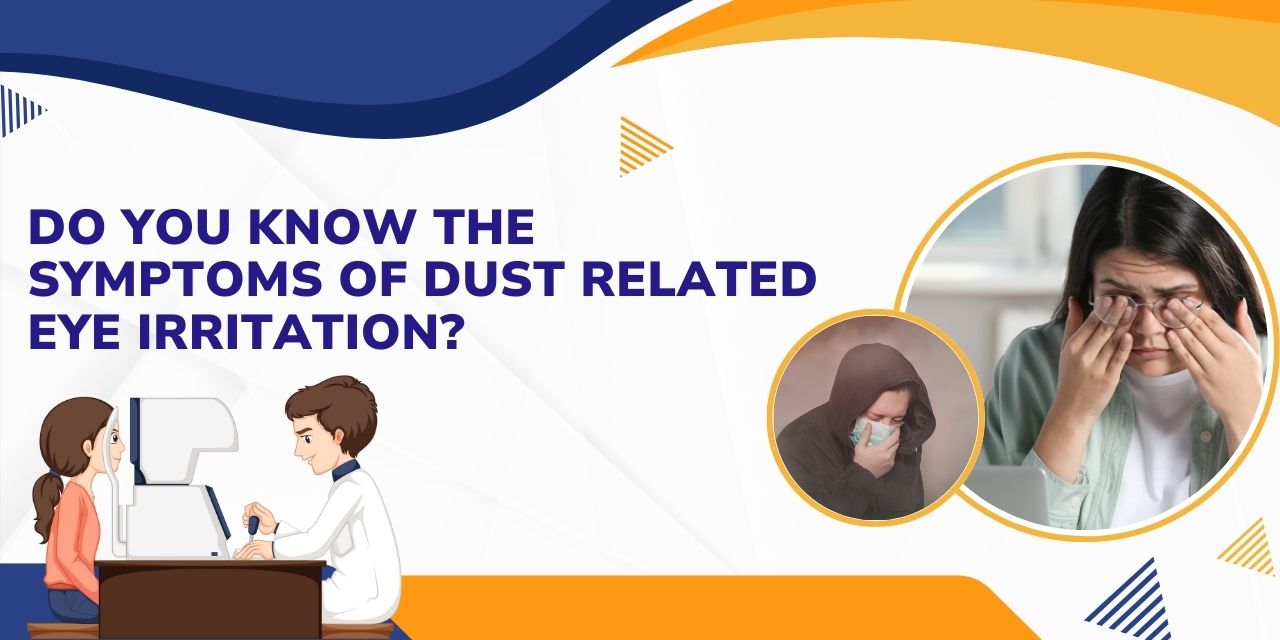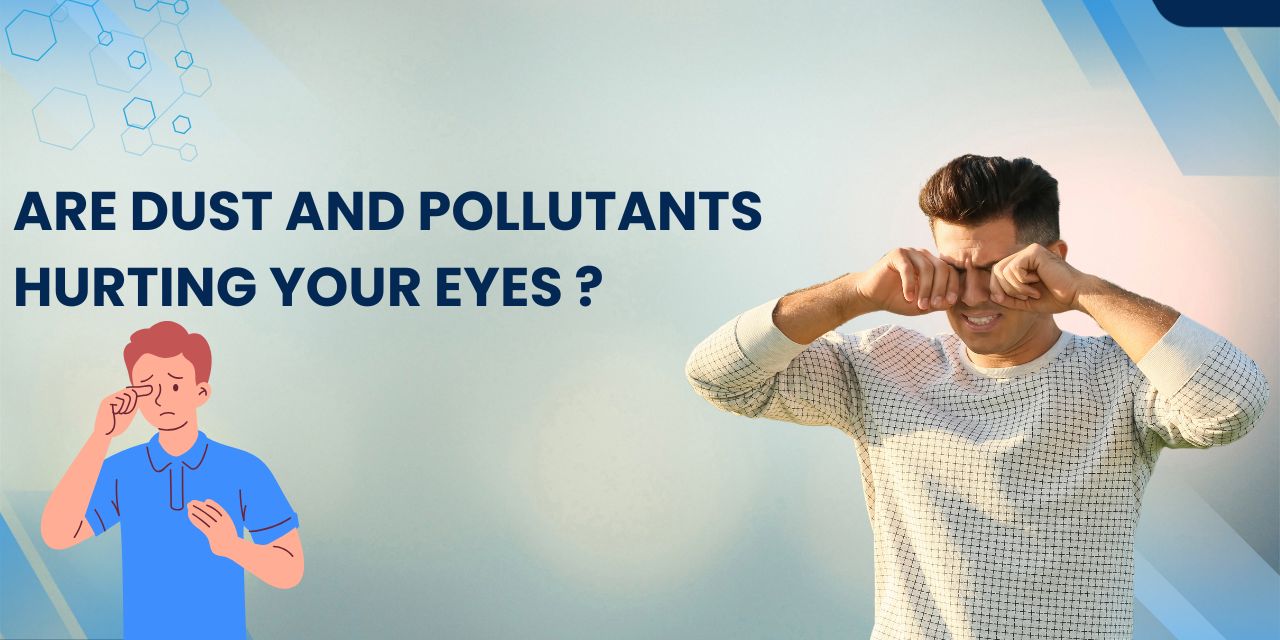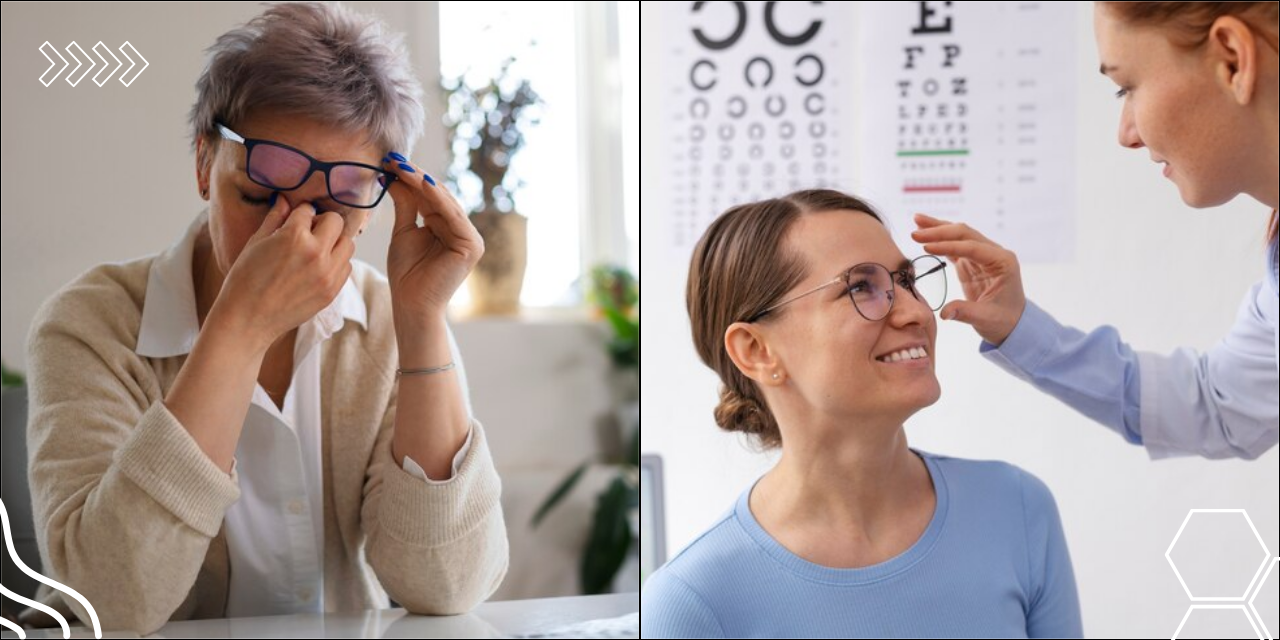In today’s digital age, our eyes are constantly exposed to screens, whether from smartphones, computers, or TVs. These devices emit blue light, a type of high-energy visible (HEV) light, which has become a significant concern for eye health and sleep quality. Understanding the effects of blue light exposure on your sleep and how blue light glasses can help is essential for anyone looking to improve their overall well-being.
What is Blue Light?
Blue light is a part of the visible light spectrum that has the shortest wavelength and highest energy. It’s naturally present in sunlight, but with the rise of digital devices, artificial blue light exposure has significantly increased. While blue light during the day can be beneficial, helping to regulate your circadian rhythm (your body’s natural sleep-wake cycle), excessive exposure, especially at night, can have detrimental effects on your sleep.
How Does Blue Light Affect Sleep Quality?
- Disruption of Melatonin Production
Melatonin is a hormone that signals your body when it’s time to sleep. Exposure to blue light, particularly in the evening, can suppress melatonin production, making it harder to fall asleep and stay asleep. This disruption can lead to poor sleep quality and increased instances of insomnia. - Circadian Rhythm Disruption
Blue light exposure at night can trick your brain into thinking it’s still daytime, delaying the onset of sleep. This can shift your circadian rhythm, causing difficulty in waking up in the morning and a lack of alertness during the day. - Increased Risk of Sleep Disorders
Long-term exposure to blue light, especially before bedtime, has been linked to an increased risk of developing sleep disorders such as delayed sleep phase syndrome (DSPS) and other circadian rhythm sleep disorders.
Why You Might Need Blue Light Glasses
Given the widespread use of digital devices, it’s challenging to eliminate blue light exposure entirely. However, blue light glasses are a practical solution to help mitigate its effects. Here’s why you might consider using them:
👉Protection from Digital Eye Strain: Blue light glasses can help reduce digital eye strain, which is often accompanied by symptoms such as headaches, dry eyes, and blurred vision. By filtering out blue light, these glasses can make screen time more comfortable and less taxing on your eyes.
👉Improved Sleep Quality: By wearing blue light glasses in the evening, you can minimize the impact of blue light on your sleep. These glasses help maintain your melatonin levels, promoting better sleep quality and a more natural sleep cycle.
👉Versatility and Convenience: Blue light glasses are available in various styles and can be worn by anyone, whether you have a prescription or not. They can be easily incorporated into your daily routine, providing protection without requiring major lifestyle changes.
👉Enhancing Eye Health: Prolonged exposure to blue light may contribute to long-term eye health issues, such as macular degeneration. Blue light glasses can serve as a preventive measure, helping to protect your eyes from potential harm.
Causes of Blue Light Exposure
The primary sources of blue light exposure in our daily lives include:
➤Digital Devices: Smartphones, tablets, computers, and TVs are the most common sources of artificial blue light. The more time you spend on these devices, the more exposure you get.
➤LED and Fluorescent Lighting: Modern lighting solutions, such as LED and fluorescent bulbs, emit a significant amount of blue light, contributing to your overall exposure even when you’re not looking at a screen.
➤Sunlight: While natural blue light from the sun is essential during the day, overexposure without proper protection can still lead to eye strain and other issues.
Frequently Asked Questions (FAQs)
➽Can blue light glasses completely block out blue light?
No, blue light glasses do not block out all blue light but significantly reduce the amount of blue light that reaches your eyes. This reduction is usually sufficient to help alleviate digital eye strain and improve sleep quality.
➽When is the best time to wear blue light glasses?
It’s best to wear blue light glasses in the evening or whenever you’re using digital devices for extended periods. This helps minimise the impact of blue light on your melatonin levels and reduces eye strain.
➽Do blue light glasses have any side effects?
Blue light glasses are generally safe to use and have no known side effects. They are designed to protect your eyes and improve comfort during screen time.
➽Are blue light glasses necessary for everyone?
While not everyone may need blue light glasses, they are beneficial for people who spend significant time in front of screens, particularly in the evening, or those experiencing symptoms of digital eye strain.
➽Where can I find the best blue light glasses in Chandigarh?
If you’re looking for high-quality blue light glasses, visit Titan Eye Plus in Sector 15, Chandigarh. They offer a wide range of options, ensuring you find the perfect pair to suit your needs.
➽Are blue light glasses available with prescription lenses?
Yes, blue light glasses are available with both prescription and non-prescription lenses, making them accessible for everyone.
Conclusion
By understanding how blue light disrupts sleep and utilizing blue light glasses, you can take proactive steps to protect your health and well-being. If you’re in Chandigarh and looking for the best options, visit Titan Eye Plus in Sector 15 .They offer a variety of blue light glasses tailored to your needs. Additionally, their store is renowned for offering some of the best eyeglasses in Chandigarh Sector 15, making it a one-stop destination for all your eyewear needs.For more information please contact us on : 18002660123.













